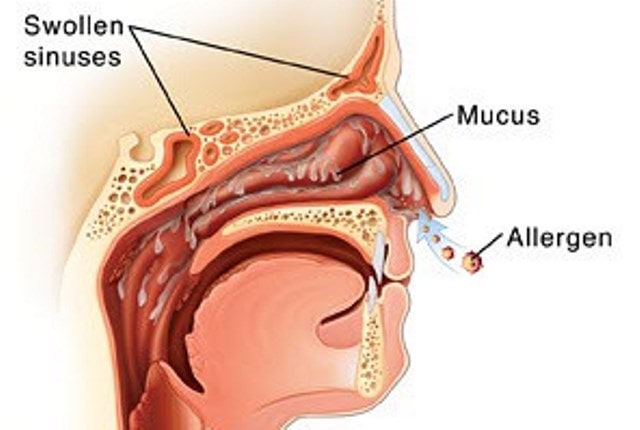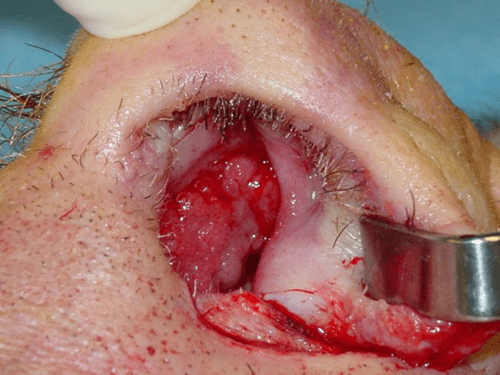The belly button is a scar at the point where a child and mother were attached by the umbilical cord. The nature of the belly button is such that it leaves some dark moist crevices which makes it hard to clean. This may lead to infections as this kind of environment is favorable for the proliferation of microorganisms. With these possibilities, an itchy belly button may occur. This can affect anyone from toddlers, males, females as well as expectant mums. What causes itch around or inside the belly button and how can you relief the itch? These are explored below.
Itchy Belly Button Causes
The causes for belly button itch are varied. They range from simple reactions to complex matters such as abdominal surgery. Explored below are the various causes.
Navel Infection
The belly button happens to be a warm and moist place making it a good area for the proliferation of microorganisms. These increase within no time leading to various forms of infections such as:
Belly Button Fungal Infections
Yeast infection is a common fungal infection experienced on the navel. Some of the symptoms that may be experienced include an itchy belly button with redness on the surrounding skin.
Navel Bacterial Infection
Bacterial infections are accompanied by a yellowish discharge and scabbing which makes the belly button itchy.
Belly button infections are normally accompanied by a foul smell, navel discharge, itch, inflammation and swelling.
Infections that may be causing an itchy belly button may result from poor hygiene, the presence of foreign objects in the navel, infected belly button piercings as well as improper after care after a surgery involving the navel. Other causative agents may be obesity and diabetes.
Contact Dermatitis
Contact dermatitis occurs when the skin reacts to something it gets into contact with. Although this is mostly unpleasant and not dangerous, allergic contact dermatitis can see the skin around develop a red itchy rash.
Lotions, creams, soaps and detergents used on clothes can all cause contact dermatitis.
Belly Button Piercing Infection
While a navel piercing carries with it a fashion statement, the healing process takes time. One of the down side to it is that infections could occur at the point of the piercing as well as on the skin surrounding it. This is more so where the after care is not sufficient leaving the area prone to bacterial infections.
With an infection, the piercee is likely to experience an itchy belly button which will initially bleed before giving a discharge. During the time of infection the piercing will also be painful, smelly and may have a liquid coming out of it.
Umbilical Hernia
According to NHS, “A hernia occurs when an internal part of the body pushes through a weakness in the muscle or surrounding tissue wall.”
An umbilical hernia occurs when the small intestines push near or between the muscles to protrude around the belly button. Umbilical hernias are common in toddlers and young children especially those born prematurely.
In grown ups, obesity, abdominal surgery and multiple pregnancy may result in hernias. When it occurs, the area will have a bulge accompanied by a burning sensation, tingly or itchy feeling around the navel.
Environmental Factors
In some situations, the cause of an itchy belly button could be environmental factors. This includes things such as lack of moisture in the atmosphere leading to dry itchy skin. Swimming in contaminated water can also see the belly button area suffer massive itch.
Sebaceous Belly Button Cyst
Navel sebaceous cysts are another cause of itchy skin around the abdomen. These manifest as itchy fluid filled lumps. The resulting scratching may see the area get infected in which case it would be necessary to see a doctor.
Red Itchy Belly Button
A red itchy belly button is in most cases indicative of an infection or allergic reaction to a belly button piercing ring. Inflammation and irritation from commercial products could also see the area develop a red rash or bumps. In case of scaly or flaky scabs symptoms in addition to the redness and itching, the area could be affected by skin conditions such as eczema and psoriasis.
Surgical procedures such as tubal ligation could see you suffer redness and itch around the area of incision. This is in addition to temporary pain. The symptoms should get better with time as the skin around the belly heals.
Itchy Belly Button during Early Pregnancy and While Pregnant and in Late Pregnancy
A common concern online normally is “Does an itchy Belly Button Mean Pregnant?” This is only a superstition and an old wives tale that should not be taken seriously. The physical signs of pregnancy may vary from one person to another and the only way to ascertain it is by having a pregnancy test.
The only reason you may be experiencing an itchy belly button during pregnancy is due to the fact that the skin starts to stretch. This is in readiness to accommodate the developing fetus. As the skin stretches, it dries out something that causes an itch around the abdomen the belly button included.
As the pregnancy progresses, so does the stretching of the skin. By the time it is in the third pregnancy, the abdomen is at its maximum stretch which increases the itching. The itch may also extend after pregnancy as the skin readjusts.
Itchy Belly Button after Surgery; Gallbladder, Tummy Tuck, Tubal Ligation, Hernia Repair
Any form of surgery subjects the skin surrounding where it is done to trauma. As the skin heals and a scar is formed, the skin becomes itchy, mildly painful and tender. These symptom may be short term or long term. Old surgical scars tend to itch too especially when it is cold.
An itchy navel after a tummy tuck, gallbladder surgery, tubal ligation or any other form of abdominal surgery is normal. This is unless it becomes unbearable or signs of infection start showing.
Itchy Belly Button No Rash, Rash, Bumps
When the navel becomes itchy, it may have other accompanying symptoms depending on the cause. Itch that is accompanied by a rash or bumps is most likely to be as a result of skin conditions such as contact dermatitis. A rash just below the belly button may be a sign of an STI and should be checked immediately. Where there is no rash and the itch is accompanied by discharge, this is likely to be an infection.
Itchy Navel after Eating and Cleaning
In case you are suffering an itchy belly button after taking a bath, it is likely that your bathing products are to blame. The itch could be an allergic reaction to ingredients used in these products. Another reason could be the use of hot water leading to excessive drying of the skin around the navel. Failing to dry the area properly after cleaning could see a proliferation of microorganisms result in itch. Ensure you dry your navel properly to avoid this.
In case of an itchy belly button after eating, the problem could possibly be something you ate not settling well with you making you become bloated. The same may be experienced in case of over eating. As the abdomen expands to accommodate the excess food, an itchy sensation may be experienced. This kind of itch should settle within a short time and does not require much of an intervention.
Itchy Belly Button Relief and Treatment
In most cases an itchy belly button is no cause for alarm unless in cases of severe infections. Where the cause is a specific health condition, have it treated first before applying other methods to cope. For other causes, simple interventions to help relief the itch can go a long way. Here are some ways on how to relief belly button itch:
Over the Counter Products for Belly Button Itch
To control infections, you can make use of anti-fungal creams and foam treatments. Wash the area using a mild anti-bacterial soap. Wipe off the area thoroughly before applying any anti-bacterial topical treatment as may be directed.
Home Remedies for an Itching Belly Button
There are a number of natural remedies that can be used to get rid of itching around the belly button. Some of these itchy belly button home treatments include:
Aloe Vera Gel
This has healing properties and will help get rid of inflammation. It is a perfect remedy for a red itchy navel. Simply scoop some fresh gel from a leaf and apply it on the skin. Leave it to dry before rinsing it off.
Salty Water
This is a great remedy for the itch especially where it is originating from a navel piercing hole. It helps in drying up moisture that may be causing infections and thus the itch. Saturate some water with salt and use the solution to clean up the area.
White Vinegar
Vinegar has anti-inflammatory properties that help it quell itch on the skin surrounding the navel. It also helps in balancing the pH levels and thus help in eliminating microbes that bring about infections. Mix water and vinegar in the ratio of 1:3. Use this to clean up the area around the itchy place.
Neem Oil
This has medicinal properties that are essential in treating navel infections. It works by killing bacteria and fungus as well as eliminating inflammation and any accompanying pain. To get rid of the itch, apply neem oil directly on the navel using a cotton bud and repeat as may be necessary.
Sources
NHS: Umbilical Hernia


